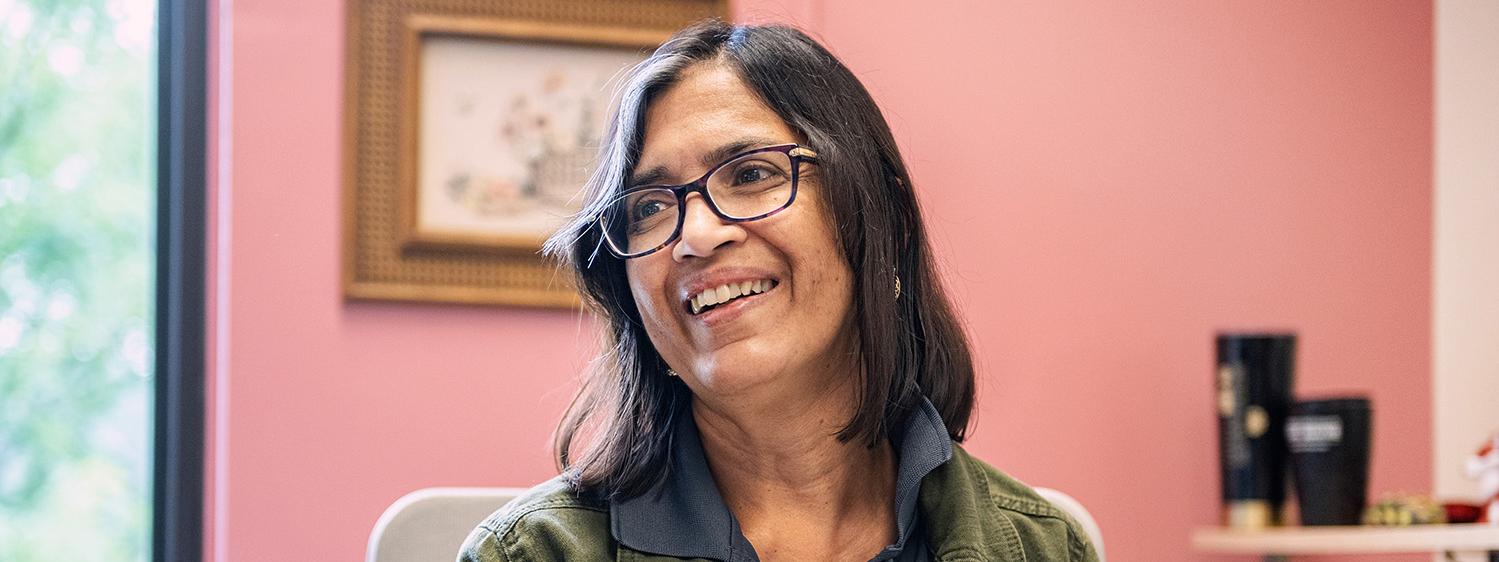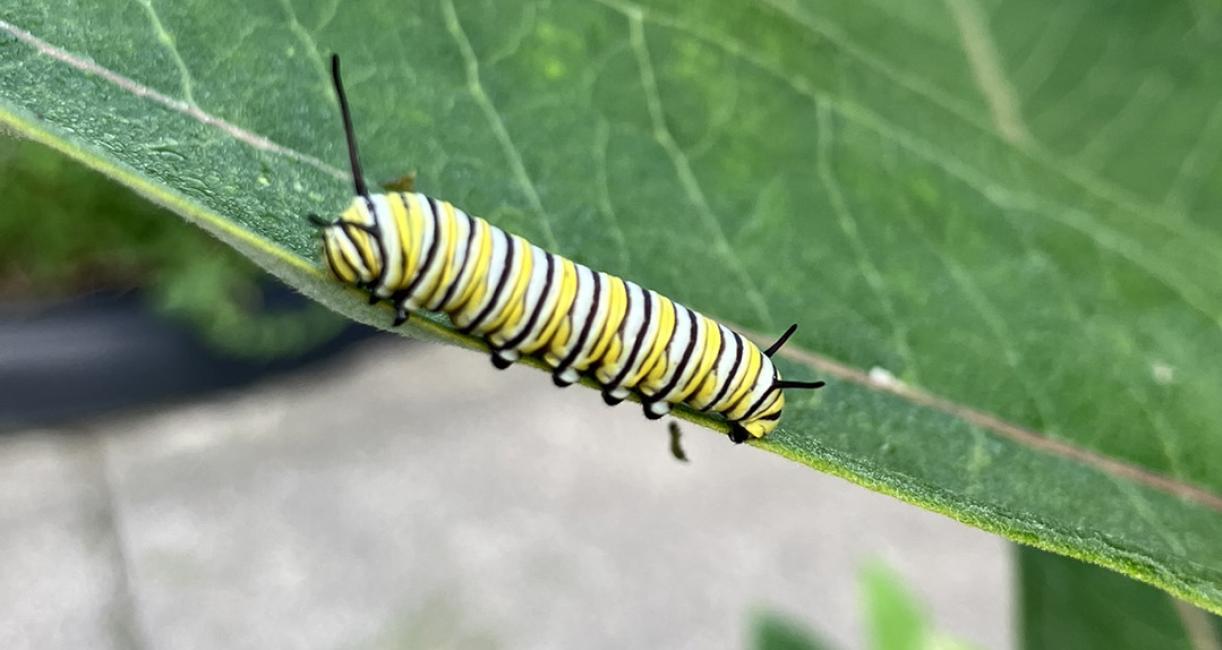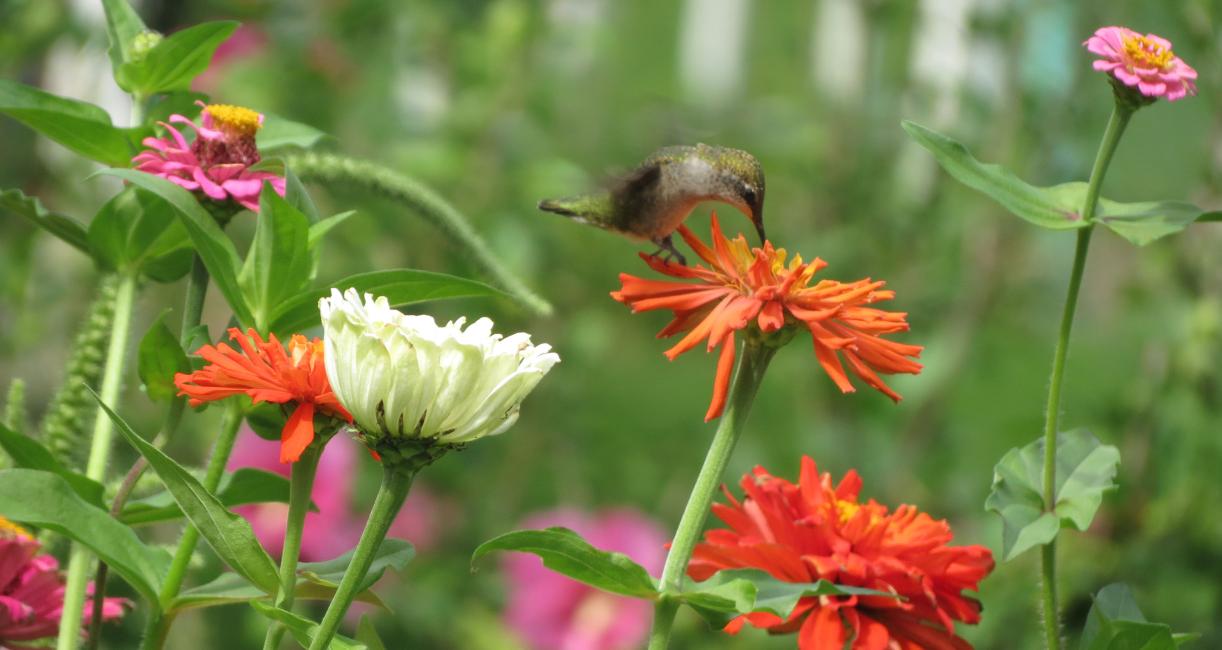



Cousik champions the harmonies of nature to inspire in the classroom
By Blake Sebring
July 25, 2023
Rama Cousik produces amazing garden videos and often films new ones using her phone by walking outside her home.
The Purdue University Fort Wayne associate professor of special education in the Department of Counseling and Graduate Education recently shared a clip of female and male goldfinches happily chirping away from a bush in her front yard. The color and the birds’ enthusiasm were as vibrant as any nature channel show.
Dozens of bird species have found a home on Cousik’s property, and she and her husband happily capture riveting pictures of them all. From their perspective, if the birds are happy, the humans will be delighted.
When Cousik came to Indiana University in 2005 from her native India to study for her doctorate, she volunteered at a community garden and learned about composting and worms. Soon, she started a cookie sheet composting project on her balcony, throwing a few seeds on top. A few days later, the seeds were sprouting, and so was Cousik’s interest in sustainability and gardening.
She became passionate about cooking local produce, composting, using organic products, growing native plants and vegetables, learning about sustainability, and lessening her environmental impact. When she moved to Fort Wayne and PFW in 2011, Cousik built a 20-foot-by-20-foot garden in her backyard, rejecting the use of pesticides and insecticides.
Now the birds, butterflies, bugs, and moths are permanent residents around her abode. She’s got pictures of all of them, and her yard has received certification from the National Wildlife Federation.
Cousik’s passion is much more than a simple hobby, but more of a disciplined lifestyle that she says comes from her heart and is full of personal satisfaction.
“You have to be passionate, and it has to sustain you every day in how you live from morning to night,” Cousik said. “I am not living the golden life because it’s hard to live a very sustainable life, but I am doing the best I can. My immediate goals are health and conservation. It’s all about what is here and what can I do with it without causing a negative impact on the environment?”
Her garden is not meant to be magazine-picture beautiful, but about using everything that grows in it and conserving resources.
Her example is so successful, Cousik was honored by the Allen County Department of Environmental Management last year with an award for her contributions to improving the environment. That includes volunteering at a YMCA camp to teach children how to build a community garden and teaching a bimonthly class on Indian cooking.
“I cook everything from scratch, which is how I learned from my grandmother,” Cousik said. “We knew all about healthy foods without those fancy words like eco-friendly or organic back then. During the Depression, everybody’s grandmother knew how to be sustainable for the next generation and cook with what was available.”
She’s also very good recreating delicacies she learned from India. The aromas she produces have such a delicious fragrance that YMCA workers have asked her to make enough to leave leftovers, and one of the desk workers asked if she could be adopted.
Cousik tells her cooking class students they don’t need to import ingredients from India, but can use what they find in local groceries. Cousik says she never preaches her philosophy, but encourages others to learn more about minimalism and sustainability and to make healthy choices.
“It’s about the interconnection between everything you do in your life,” Cousik said. “It’s not just gardening or eating healthy food or cooking or preaching what you do. It’s about a network of things that you do that work in harmony. It has to be harmonious. You don’t want to be unhappy doing those things, and you want to be happy eating that food. If it’s healthy but tastes yucky, then why would you want to be eating that every day? It’s about having fun.”
But besides the times Cousik shares her food with students, how does this lifestyle affect her teaching at PFW.
“When you have this personal passion, it sustains your energy to be a good and creative professor,” she said. “You can’t be a gardener at home and a different person here. It will have a positive influence on how you live. Many of my students get it because I share my passion with them. A passion for sustainability and creativity is a critical part of teacher disposition and enables our teacher-candidates to promote those values in children.”




